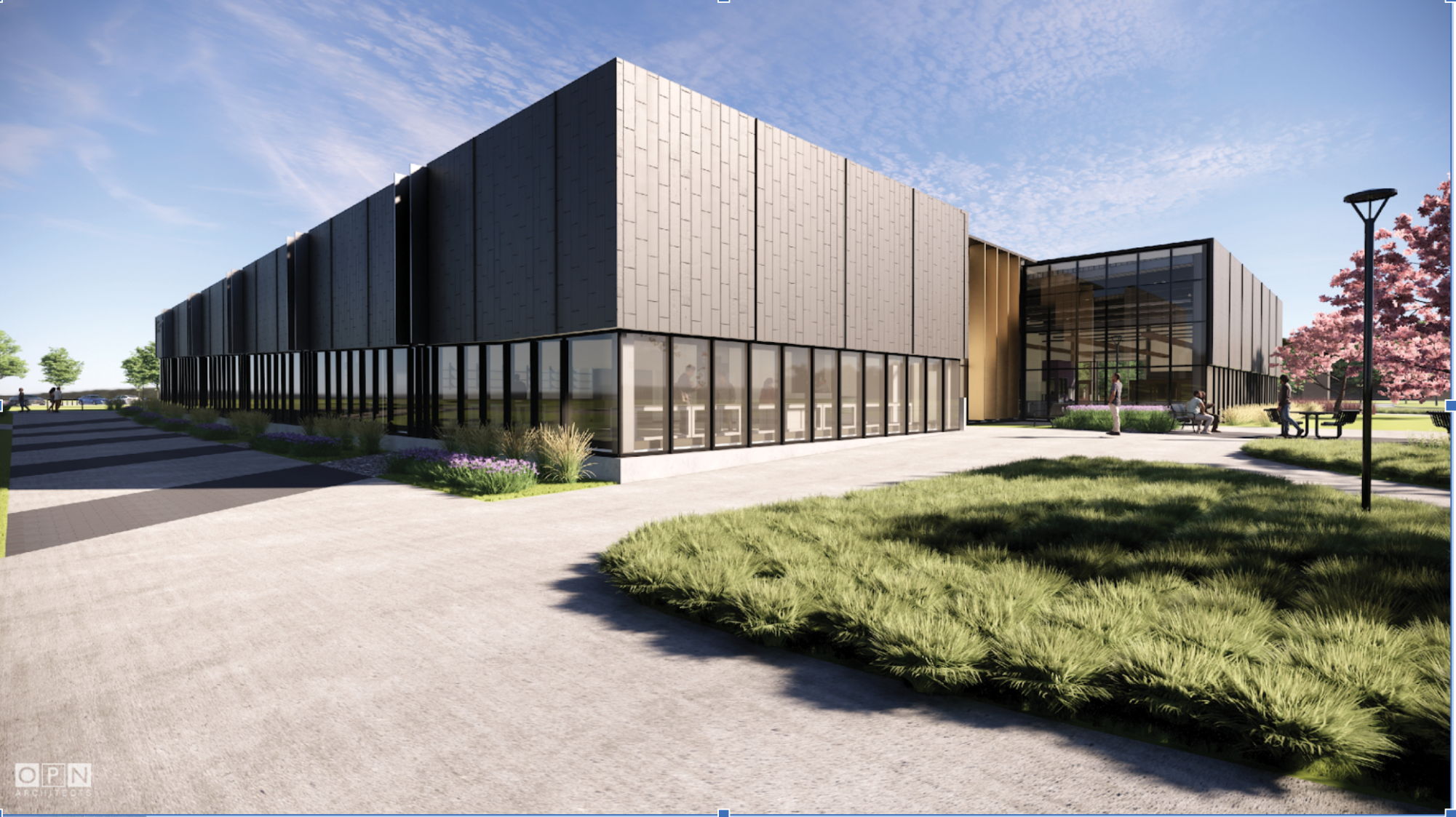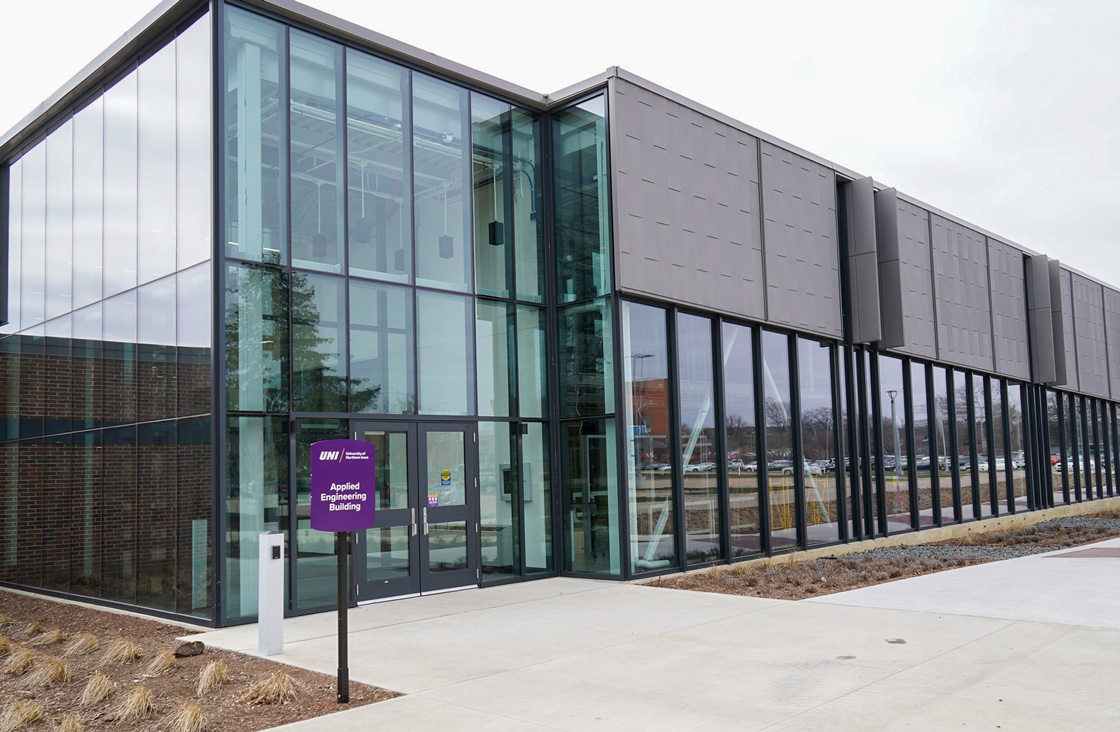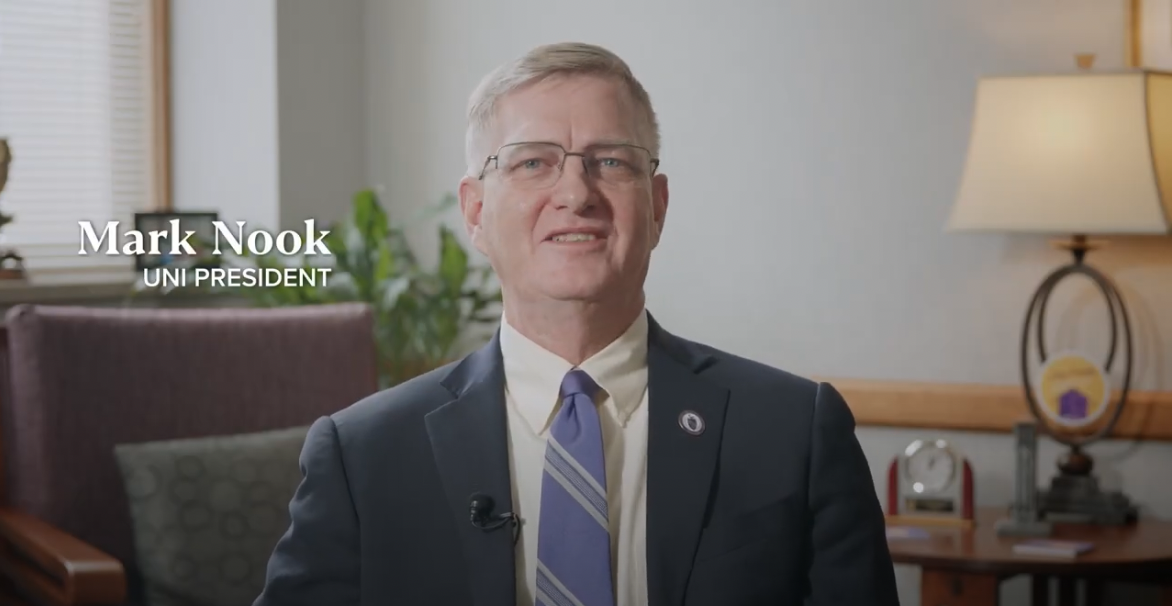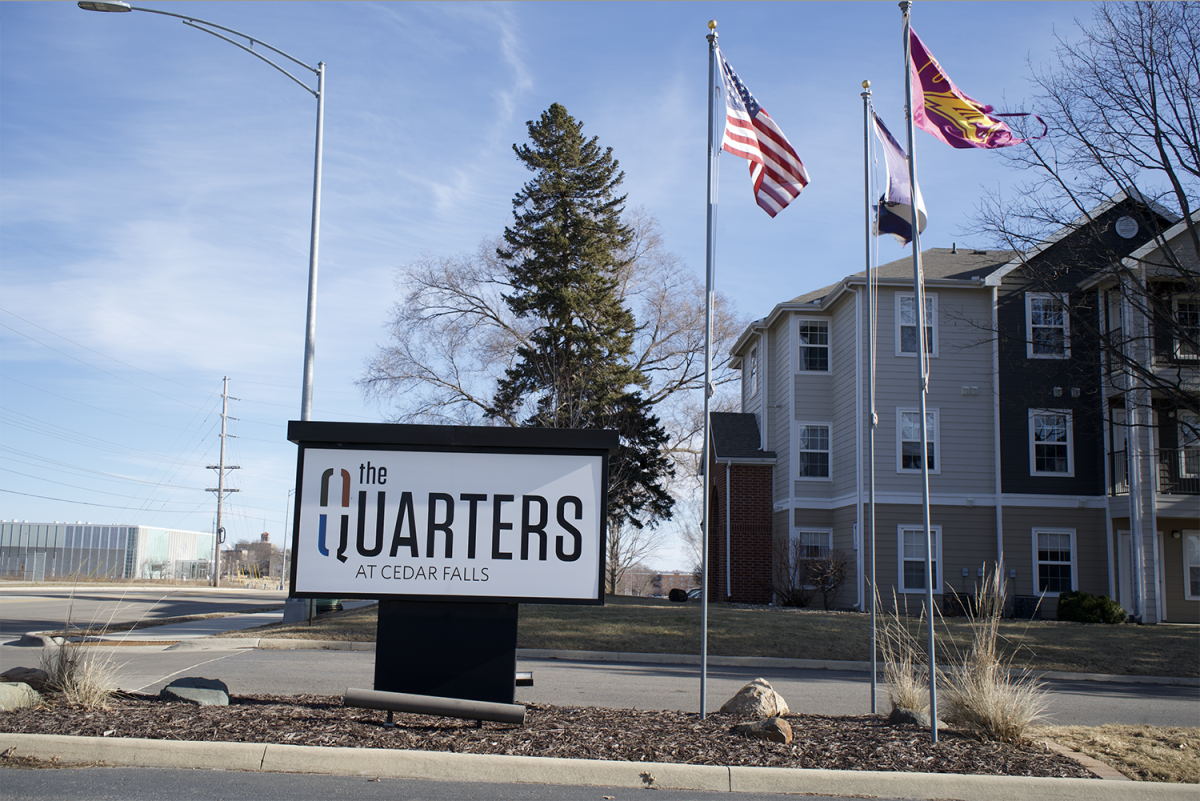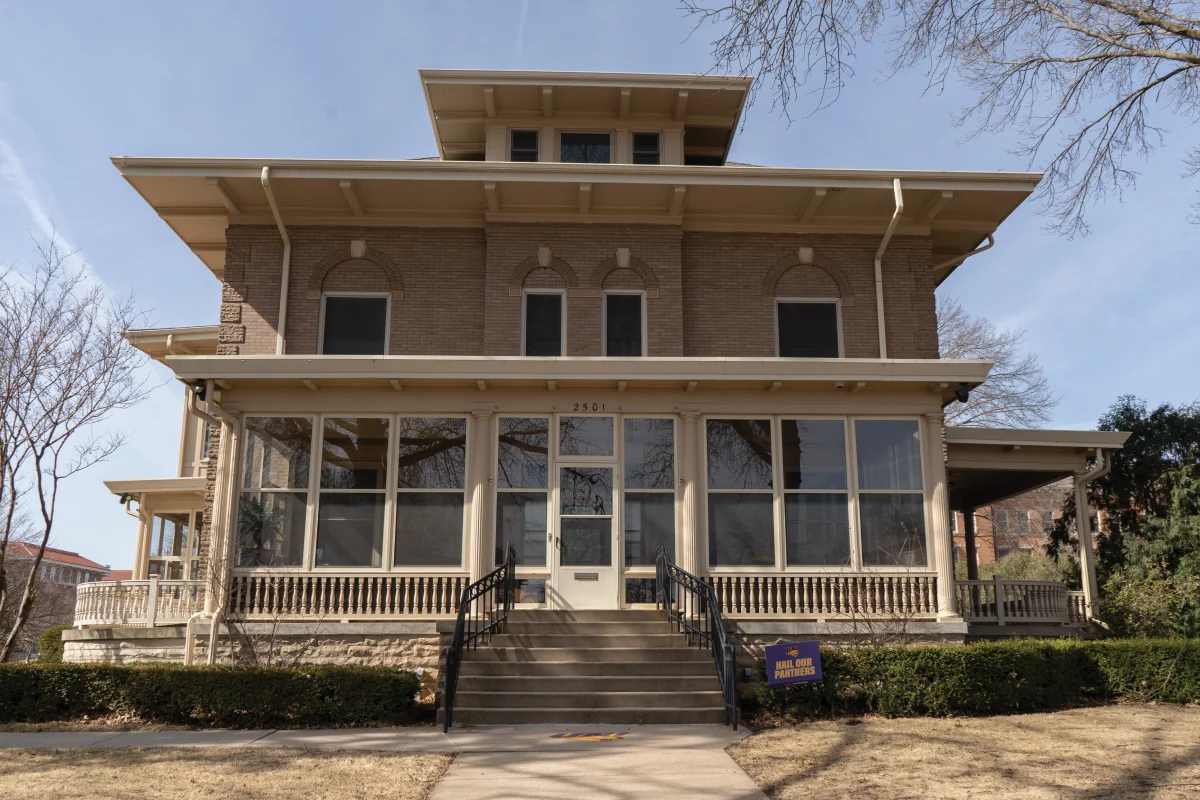The University of Northern Iowa is reaching new heights in the engineering industry. With the renovation of the Applied Engineering Building and the unveiling of their first-ever engineering degree, UNI is on pace to become a major contender in the educational pursuits of future engineers.
The new Bachelor of Science in Materials Science and Engineering degree will focus on the properties of metals and metal casting and will work more with the physics and chemistry and biochemistry departments. A second more applied program will also be available. The Bachelor of Science in Materials Science Engineering Technology will take more of a manufacturing approach and be industry-based while utilizing UNI’s existing metal working facilities. The program is set to begin in fall 2024 and will be housed in the newly-renovated Applied Engineering Building.
Lisa Riedle, Ph.D., PE, head of the Department of Applied Engineering and Technical Management, says that the difference between the two programs is based on the amount of science and math involved in the curriculum, creating the option for students to choose between the two based on classes they prefer.
“Our [advisory board members’] programs are very close in industry,” she said. “That meaning we want to make sure that [with] the curriculum that we have, our students are hirable at the end… to make sure that what we have in our curriculum meets their needs.”
UNI partners with industry leaders like John Deere, Vermeer, Doerfer Engineering and more to see that students get the opportunities that can further their education and provide future employment.
The department currently uses the back of the Applied Engineering Building for the programs’ daily use, but come January is expected to gain additional access during phase one of completion. This opening will grant students an extra 40,000 square feet of space.

rate. (COURTESY/UNI)
One of the talking points created by Riedle and UNI staff that were given to the Iowa Board of Regents to propose the program stated, “Creating a Materials Science and Engineering program at UNI, along with the one already at ISU (Iowa State University), gives the state of Iowa a distinctive strength in this area and makes it an attractive center for high tech manufacturing.”
This area includes the work with materials and the advanced equipment house in UNI’s Metal Casting Center and the Foundry 4.0 Center. Through the combination of the physics, chemistry and biochemistry departments, students will be looking at physical and chemical properties of the materials they will be working with in their future professions.
John Fritch, Dean of College of Humanities, Arts and Sciences, says that the joint program will be the first true engineering program at UNI and that it wouldn’t put the program in direct competition with the University of Iowa or Iowa State.
“Many engineering programs have a lot of students enter, but very few graduate,” he said. “Our goal would be to have a smaller, more focused engineering program where we have a much higher completion rate.”
Fritch added that industry companies have been consistently in contact with UNI, making sure that students are getting the education they need to prepare for futures with these companies.
“People not from UNI, but people from other places describe our facilities as ‘world class,’” he said. “Our goal is to teach people not just the content, but how to adapt that content.”

